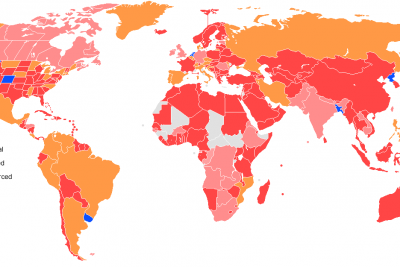So, Lord Shiva had a love for it, and so should you? And now two U.S. states have legalised it and so should we? The human mind has an impeccable quality of contorting facts for convenience. Legalisation of marijuana, an incendiary topic for years now uses this excuse to its utmost advantage. Why not look at the flip side of the above stories. Well for starters, Lord Shiva was Lord, not a lesser mortal, and what about the other myriad deities we revere, were they too proponents of the grass? And if Washington and Colorado have picked up the crusade for legalisation, why not look at the other countries that still haven’t?


http://en.wikipedia.org/wiki/Legality_of_cannabis_by_country1
The case for and against psychoactive substances has always been one of influencing and being influenced. Let us start the argument with the very basics:
So, what is marijuana?
6
- A drug produced from the Cannabis sativa (hemp) or Cannabis indica.
- It’s essentially a plant belonging to the category of nettles, believed to have originated in India (Central & south Asia).
- Marijuana is more commonly known as bhang, hasish, charas, ganja, pot, grass or weed.
- Cannabis or tetrahydrocannabino (THC), is the key ingredient which determines the “high”, induced.
The point is to understand, that with the push for legalisation of this “drug”, why is it that people are rushing to get “high”? The most common argument is that weed is a natural substance that soothes you and boosts productivity. Well, yes it’s natural, but all it does is create emotionally crippled adults, not “soothed” ones; because, it turns you into an escapist. An age where young people need to learn how to cope up with their subliminal emotions, the drug instead creates individuals incapable of handling anxiety and other extreme emotions. As far as productivity is concerned, let us look at the facts pointed out by
‘drugfreeworld.org’5, 4:
SHORT-TERM EFFECTS
- Anxiety pangs
- Poor coordination of movement and or distortion of sensory reception
- Reduced reaction time
- After an initial kick or “high”, the user complains of feeling sleepy or depressed
- Risk of heart attack
LONG-TERM EFFECTS
- Reduced immunity (more susceptible to colds, bronchitis, etc.)
- Stunted growth in teenagers
- Increase of abnormally structured cells in the body, greater incidences of cancer especially leukaemia
- Reduction in male sex hormones, sexual performance and sperm count
- Rapid destruction of lung fibres
- Likelihood of permanent injuries to the brain
- Reduced ability to learn and retain information
- Personality and mood changes
- Grasping, concentration and understanding capabilities are reduced
Do you believe the drug dealer and the “soothing effect” crusaders, tell you all this? There are numerous other reasons that youth have listed as to how marijuana acts as a ‘problem fixer’:
- To fit in / To experiment with the “cool substances” (peer pressure)
- To escape the harsh realities of life
- To seem grown up/ To rebel against societal norms
Even a quick glance through the list can tell you that weed is not the answer.
The whole essence of the above rhetoric is that legalisation of the drug will only put it in the spotlight; it will only embolden the championed cause that the ‘natural substance’ does no harm. But as with all well designed marketing campaigns, this one too comes with the quintessential ‘conditions applied’. And the basic condition that remains inconspicuously hidden in small letters somewhere in the argument is ‘moderation’ i.e. weed, in moderation does more good than harm. Even if that is true, who defines moderation and most importantly who regulates it? And mind you, moderation does not come easy to the human mind. “drugfreeworld.org” puts it succinctly as follows:
Once the threshold stamina is crossed, and marijuana stops giving the desired kick, the resultant situation can lead users to consume harder drugs like cocaine and LSD to achieve the same high. Without this, the person loses balance of mind and reaches a stage of desperation, even chronic depression. Another reason why the person may turn to these more potent drugs is to rid himself of the unwanted conditions that caused him to take marijuana in the first place. Marijuana covers up the problem for a while (till the kick is in); once the
“high” fades, the unwanted condition returns more intensely than before. The user may then seek refuge in harder drugs since the marijuana no longer does the trick for him.
Majority of cocaine users (99.9%) began by first using a “gateway or entry level drug” like marijuana, cigarette or alcohol and primarily due to peer pressure. We are not saying that everyone who smokes marijuana goes on to use harder drugs and never breaks free of the vicious cycle, only a few manage to completely quit marijuana altogether.
But a rather disturbing study on the conversion rate of youth from being a marijuana user to a cocaine addict states that youth (12 to 17 years older) who use marijuana are 85 times more likely to use cocaine in future that ones who do not. The study paints another glum picture by bringing to light the fact that 60% of kids who smoke pot before the age of 15 move on to be cocaine addicts.
As a final stroke to the argument, here’s a compilation of reasons that vociferously support the cause of not allowing legalisation of marijuana:
1. Youth - Perhaps the most important question is: Is it good for Indian children? If marijuana were to become more accessible and acceptable in our country, like cigarettes are, substance abuse problems would rise, especially among the youth. Marijuana use can harm the developmental and long-term health of youth (physical), plus it can stunt learning ability (mental).
2. Medical Community- The scientific research community does not support the healing claims of “medical marijuana”. Several health organizations, the world over have only approved certain prescription pill products and only those containing safe and effective isolated components of the cannabis plant.
3. Spike in social costs expected - Social costs of legalizing marijuana would far exceed sales tax revenues. The expected costs could come from increased drug treatment, crime, health care, road accidents, school drop-outs, etc. Our country which is already grappling with rampant poverty, high crime rates and a lacking retribution and judicial system can absolutely not do with this additional burden. A classic case in point is the analogy of cigarette smoking which is legalised but restricted in India. The associated disclaimer has no effects and setting off the revenues collected are the health costs incurred every year.
4. Hindrance to economic growth - Worker marijuana use is associated with more absences, shabbiness and workers’ turnover. This directly affects productivity and hence the economic development of the country, whose economy is finally picking up.
5. Health and well-being concerns - Marijuana use negatively impacts respiratory systems, memory and judgment. It causes anxiety, psychosis and even depression once the high fades off. The user even falls into a loop which pushes him to abuse of harder drugs.
We as a society really need to introspect on, where we are heading towards when we talk about legalising something as lethal and noxious as Marijuana. What next? Legalising cocaine, legalising methamphetamine? Are we not as a society then moving towards a dystopian future? Is this what we really want our kids to grow up to? Don’t we as a society already have our hands full with legalized intoxicating agents that we want to add to our misery?
Instead of legalizing Marijuana, substance abuse should be strictly dealt with. By legalizing Marijuana we are actually propagating the idea; if you can’t beat them, join them. I appeal to everyone, let us not fall weak as a society, let us not give in to those powers, let us not pave a way for delinquency. Instead let us join hands and build a better future. Instead of running head-on towards an apocalyptic future, let us join hands and help those who have unfortunately fallen victim to this menace called Marijuana.
We can setup rehabilitation centres, provide employment assistance, educate, and reinstate the victims to back to normalcy. If we all can work cohesively towards removing Marijuana abuse, there will come a time in future when a topic like this would not be debated upon.
References:
1.) http://en.wikipedia.org/wiki/Legality_of_cannabis_by_country
2.) http://www.huffingtonpost.com/dr-howard-samuels/legalizing-marijuana_b_4144180.html
3.) http://www.calmca.org/
4.) http://en.wikipedia.org/wiki/Effects_of_cannabis
5.) http://www.drugfreeworld.org/#/interactive
6.)http://timesofindia.indiatimes.com/india/The-joint-campaign-Should-we-not-legalize-recreational-use-of-Cannabis/articleshow/17165613.cms?referral=PM
MDI, Gurgaon
Team Ruskin
Vinti Narula
Debayan Roy



